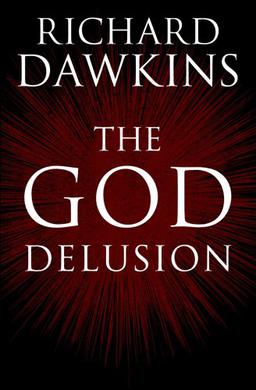
Fundamentalism is a tendency among certain groups and individuals that are characterized by the application of a strict literal interpretation to scriptures, dogmas, or ideologies, along with a strong belief in the importance of distinguishing one's ingroup and outgroup, which leads to an emphasis on some conception of "purity", and a desire to return to a previous ideal from which advocates believe members have strayed. The term is usually used in the context of religion to indicate an unwavering attachment to a set of irreducible beliefs.

The relationship between religion and science involves discussions that interconnect the study of the natural world, history, philosophy, and theology. Even though the ancient and medieval worlds did not have conceptions resembling the modern understandings of "science" or of "religion", certain elements of modern ideas on the subject recur throughout history. The pair-structured phrases "religion and science" and "science and religion" first emerged in the literature during the 19th century. This coincided with the refining of "science" and of "religion" as distinct concepts in the preceding few centuries—partly due to professionalization of the sciences, the Protestant Reformation, colonization, and globalization. Since then the relationship between science and religion has been characterized in terms of "conflict", "harmony", "complexity", and "mutual independence", among others.
Theology is the study of religious belief from a religious perspective, with a focus on the nature of divinity. It is taught as an academic discipline, typically in universities and seminaries. It occupies itself with the unique content of analyzing the supernatural, but also deals with religious epistemology, asks and seeks to answer the question of revelation. Revelation pertains to the acceptance of God, gods, or deities, as not only transcendent or above the natural world, but also willing and able to interact with the natural world and to reveal themselves to humankind.
Christian fundamentalism, also known as fundamental Christianity or fundamentalist Christianity, is a religious movement emphasizing biblical literalism. In its modern form, it began in the late 19th and early 20th centuries among British and American Protestants as a reaction to theological liberalism and cultural modernism. Fundamentalists argued that 19th-century modernist theologians had misunderstood or rejected certain doctrines, especially biblical inerrancy, which they considered the fundamentals of the Christian faith.
Cultural Christians are those who received Christian values or appreciate Christian culture. They may be non-practicing Christians, non-theists, apatheists, transtheists, deists, pantheists, or atheists. These individuals may identify as culturally Christian because of family background, personal experiences, or the social and cultural environment in which they grew up.

Karen Armstrong is a British author and commentator of Irish Catholic descent known for her books on comparative religion. A former Roman Catholic religious sister, she went from a conservative to a more liberal and mystical Christian faith. She attended St Anne's College, Oxford, while in the convent and graduated in English. She left the convent in 1969. Her work focuses on commonalities of the major religions, such as the importance of compassion and the Golden Rule.
Jewish atheism is the atheism of people who are ethnically and culturally Jewish.

Alister Edgar McGrath is a Northern Irish theologian, Anglican priest, intellectual historian, scientist, Christian apologist, and public intellectual. He currently holds the Andreas Idreos Professorship in Science and Religion in the Faculty of Theology and Religion, and is a fellow of Harris Manchester College at the University of Oxford, and is Professor of Divinity at Gresham College. He was previously professor of theology, ministry, and education at King's College London and head of the Centre for Theology, Religion and Culture, professor of historical theology at the University of Oxford, and was principal of Wycliffe Hall, Oxford, until 2005.

Samuel Benjamin Harris is an American philosopher, neuroscientist, author, and podcast host. His work touches on a range of topics, including rationality, religion, ethics, free will, neuroscience, meditation, psychedelics, philosophy of mind, politics, terrorism, and artificial intelligence. Harris came to prominence for his criticism of religion, and he is known as one of the "Four Horsemen" of New Atheism, along with Richard Dawkins, Christopher Hitchens, and Daniel Dennett.
Criticism of atheism is criticism of the concepts, validity, or impact of atheism, including associated political and social implications. Criticisms include positions based on the history of science, philosophical and logical criticisms, findings in both the natural and social sciences, theistic apologetic arguments, arguments pertaining to ethics and morality, the effects of atheism on the individual, or the assumptions that underpin atheism.

The God Delusion is a 2006 book by British evolutionary biologist and ethologist Richard Dawkins. In The God Delusion, Dawkins contends that a supernatural creator, God, almost certainly does not exist, and that belief in a personal god qualifies as a delusion, which he defines as a persistent false belief held in the face of strong contradictory evidence. He is sympathetic to Robert Pirsig's statement in Lila (1991) that "when one person suffers from a delusion it is called insanity. When many people suffer from a delusion it is called religion." In the book, Dawkins explores the relationship between religion and morality, providing examples that discuss the possibility of morality existing independently of religion and suggesting alternative explanations for the origins of both religion and morality.

Letter to a Christian Nation is a 2006 book by Sam Harris, written in response to feedback he received following the publication of his first book The End of Faith. The book is written in the form of an open letter to a Christian in the United States. Harris states that his aim is "to demolish the intellectual and moral pretensions of Christianity in its most committed forms." In October it entered the New York Times Best Seller list at number seven.
Discrimination against atheists, sometimes called atheophobia, atheistophobia, or anti-atheism, both at present and historically, includes persecution of and discrimination against people who are identified as atheists. Discrimination against atheists may be manifested by negative attitudes, prejudice, hostility, hatred, fear, or intolerance towards atheists and atheism or even the complete denial of atheists' existence. It is often expressed in distrust regardless of its manifestation. Perceived atheist prevalence seems to be correlated with reduction in prejudice. There is global prevalence of mistrust in moral perceptions of atheists found in even secular countries and among atheists.
Christian atheism is an ideology that embraces the teachings, narratives, symbols, practices, or communities associated with Christianity without accepting the literal existence of God. It often overlaps with nontheism and post-theism.
Atheism, in the broadest sense, is an absence of belief in the existence of deities. Less broadly, atheism is a rejection of the belief that any deities exist. In an even narrower sense, atheism is specifically the position that there are no deities. Atheism is contrasted with theism, which is the belief that at least one deity exists.
In the philosophy of religion and theology, post-monotheism is a term covering a range of different meanings that nonetheless share concern for the status of faith and religious experience in the modern or post-modern era. There is no one originator for the term. Rather, it has independently appeared in the writings of several intellectuals on the Internet and in print. Its most notable use has been in the poetry of Arab Israeli author Nidaa Khoury, and as a label for a "new sensibility" or theological approach proposed by the Islamic historian Christopher Schwartz.
The term New Atheism describes the positions of some atheist academics, writers, scientists, and philosophers of the 20th and 21st centuries. New Atheism advocates the view that superstition, religion, and irrationalism should not be tolerated. Instead, they advocate the antitheist view that the various forms of theism should be criticised, countered, examined, and challenged by rational argument, especially when they exert strong influence on the broader society, such as in government, education, and politics.

Atheist Delusions: The Christian Revolution and Its Fashionable Enemies is a 2009 book by the theologian, philosopher, and cultural commentator David Bentley Hart. The book explores what Hart identifies as historical and popular misconceptions of Christianity's detractors, with early material in the book being especially critical of New Atheism.

The Battle for God: Fundamentalism in Judaism, Christianity and Islam is a book by author Karen Armstrong published in 2000 by Knopf/HarperCollins which the New York Times described as "one of the most penetrating, readable, and prescient accounts to date of the rise of the fundamentalist movements in Judaism, Christianity, and Islam". The Battle for God traces the history of the rise of fundamentalism in the three major monotheistic faiths. Armstrong's analysis starts with developments in Judaism and traces it through the creation of fundamentalism in Christianity to adoption of a similar approach to modernity in Islam.

God in the Age of Science? A Critique of Religious Reason is a 2012 book by the Dutch philosopher Herman Philipse, written in English and published in the United Kingdom. Philipse found his Atheist Manifesto (1995) to be too hastily and superficially written, and decided to set up a more complete work to systematically refute all the arguments for the existence of God and adherence to any form of theism.









